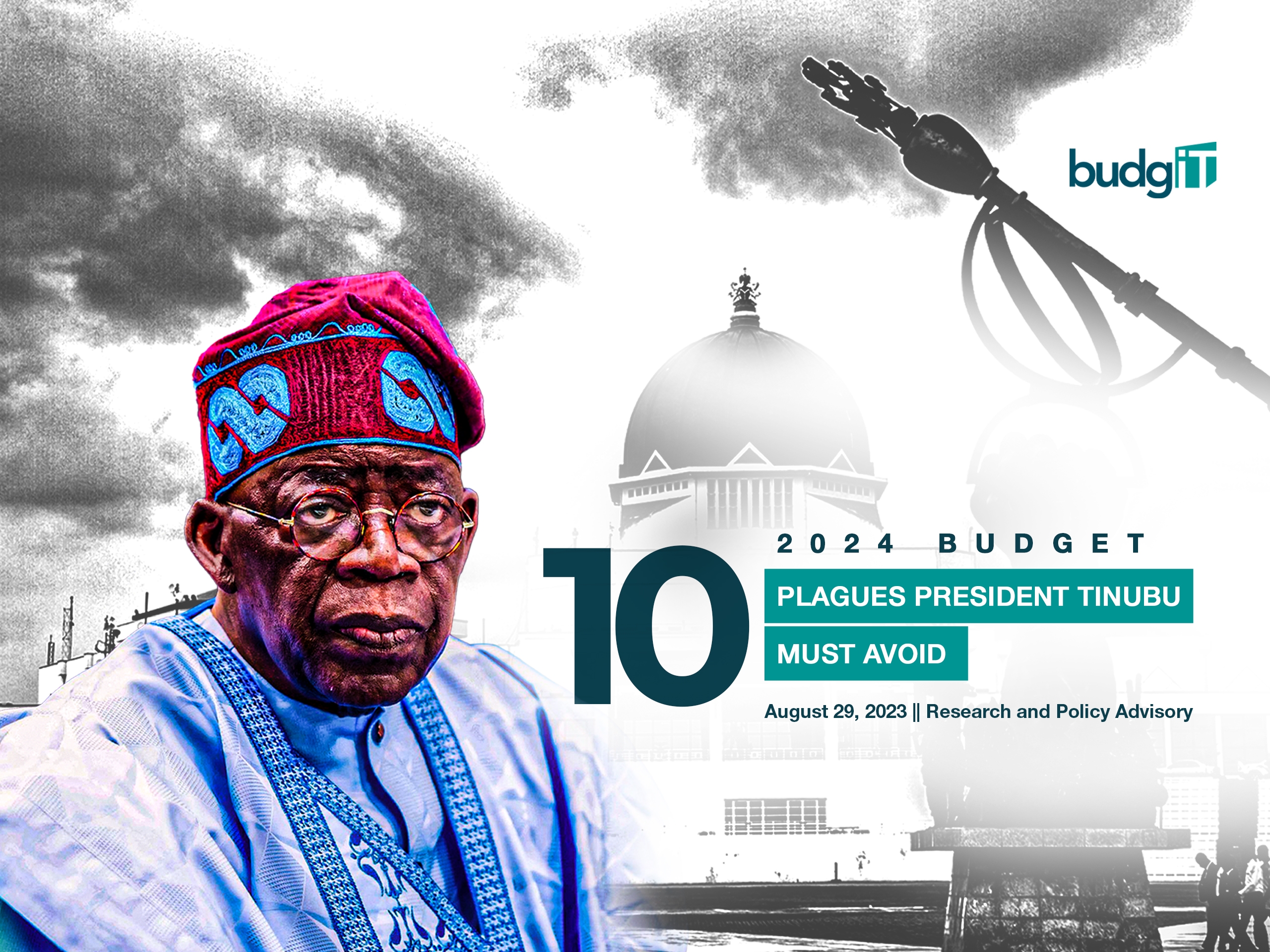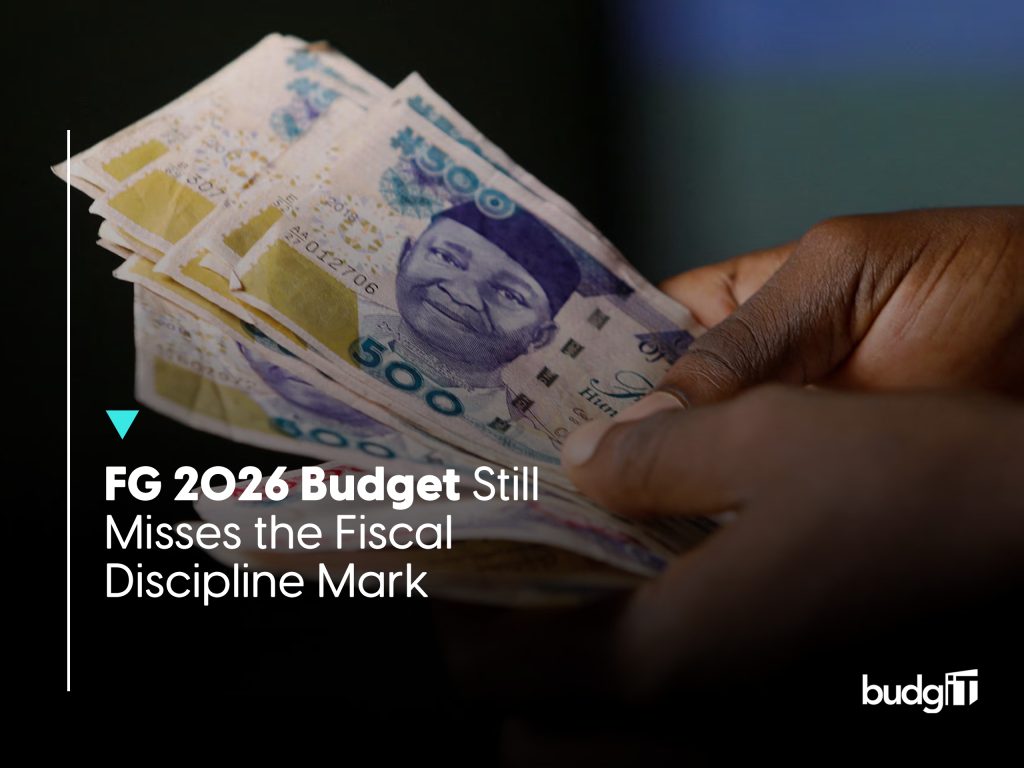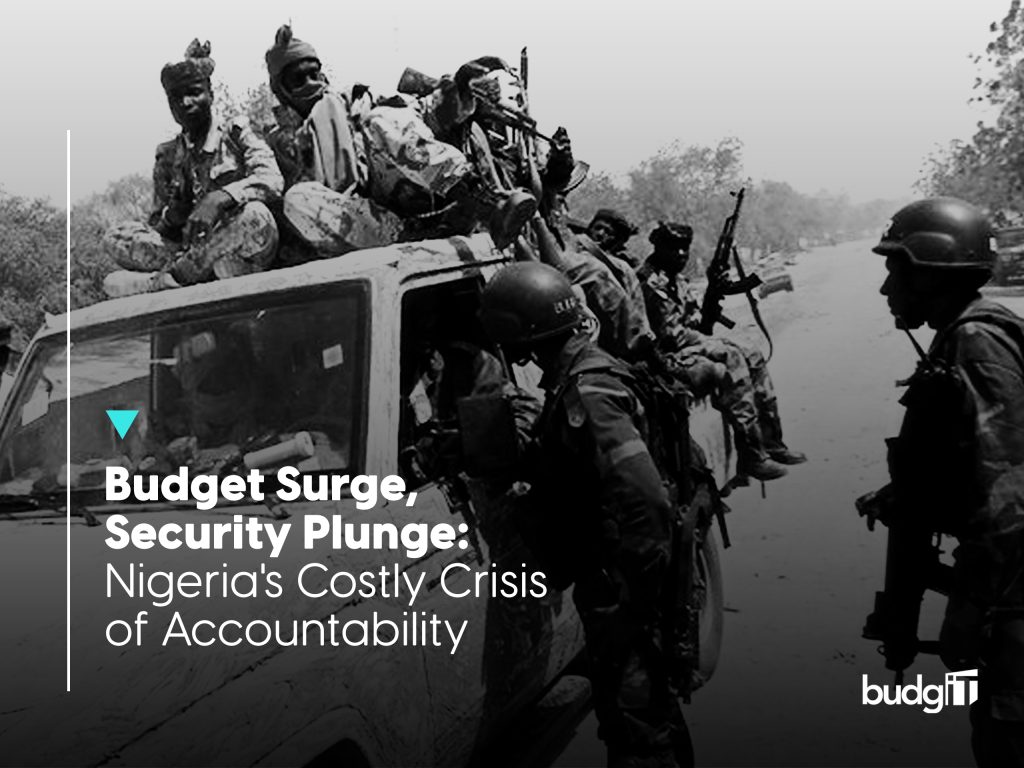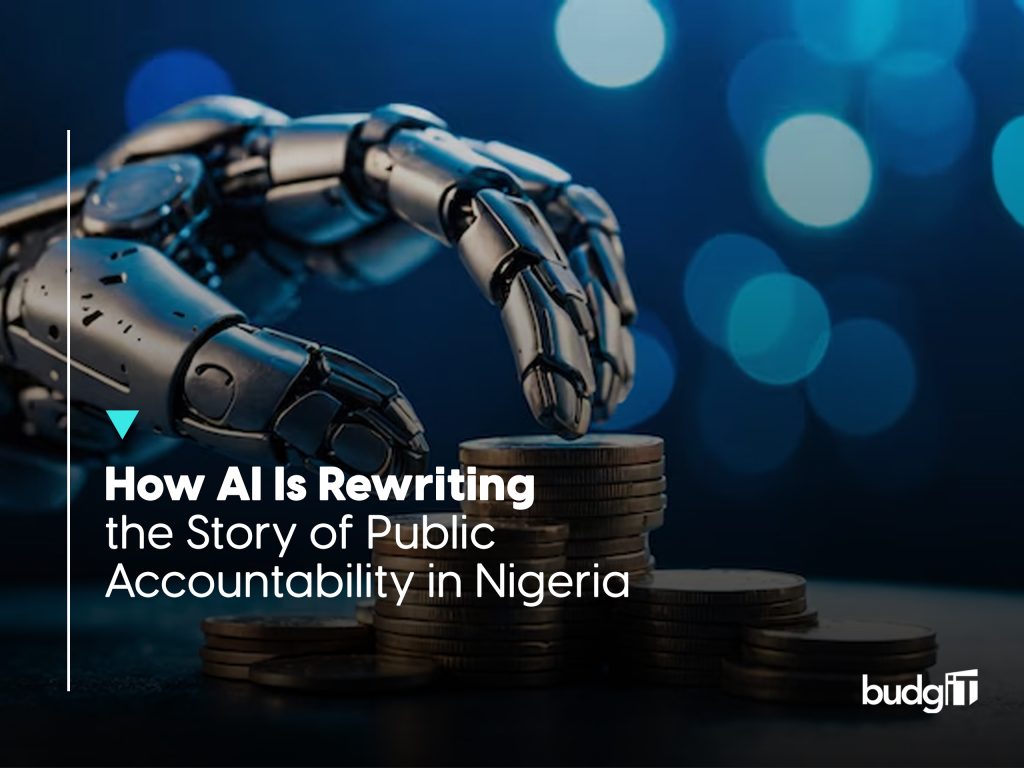2024 Budget: 10 Plagues President Tinubu Must Avoid
After the appointment of the Ministers by President Tinubu, the next most important assignment before the current administration is allocating resources through the budget process. This is to actualize the ambitious ideas expressed in the President’s manifesto and several policy documents, either already in existence or currently being drafted by members of the newly formed cabinet or established Committees. Nigeria has had a history of misallocating scarce resources through the budget and wasteful spending, resulting in the worst human development indices and creating fiscal space for state capture. As the 2024 budget process begins in earnest, President Tinubu must pay attention to certain things that have caused the federal government budget, despite huge resources allocated and spent, to fail in meeting the country’s development goals, reducing poverty, creating jobs, and fostering inclusive broad-based economic growth. Amongst the myriad of issues the President should be on the lookout for, BudgIT leaders have identified key issues that require urgent attention.
1. The Budget Needs to be Drawn from a Plan, not treated like a Contract Vending Machine
By Oluseun Onigbinde, Global Director, BudgIT
The Nigerian budget is broken and has delivered sub-optimal results because it has not been linked with national strategic plans written for the medium or short term. Beyond the broad line of macroeconomic variables, a glance at the Nigerian budget reveals an aggregation of projects that lacks coherence and compatibility with the national strategy. The budget must be an annual resource plan to deliver a nation’s coordinated vision; it must be self-evident in its line items and ensure this fits into grand ideas to deliver sustainable growth. The current President has a public manifesto, and the Federal Government recently, at a huge cost, also delivered strategic plans that terminate in 2025 and 2050. It does not make sense if the national budget is not linked to these documents. The budget needs to stop just being a contract vending machine stuffed with varied interests but a thorough planning document.
2. The National Assembly Shouldn’t be left out of the Budget Preparation Process
By Gabriel Okeowo, Country Director, BudgIT Nigeria
The Executive branch of government, which is in charge of preparing the budget (Budget of Office of the Federation), should make sure that the National Assembly is included in the budget submission circular for the zonal intervention projects they intend to implement in their constituencies. This will lessen instances of severe budget line item distortion and unreasonable insertions during National Assembly budget evaluations. The public has not really seen the inclusion of the National Assembly in the budget preparation process, thereby not allowing for the breakdown of the N100 billion Zonal Intervention Projects to be duly included in the Federal Government budget draft. This gives the National Assembly the opportunity to drastically alter the appropriation bill in the process of inserting their constituency projects. Nigerians look forward to Tinubu’s administration and a budget that leaves little or no room for the National Assembly to distort the fiscal direction of the budget.
3. Strengthen Budget Credibility for Inclusive Growth and Service Delivery
By Vahyala Kwaga, Senior Researcher and Policy Analyst, BudgIT
The importance of ensuring the credibility of budgets is one that rings true regardless of political dispensation. This is because the impact of a credible budget spells even development and potentially leads to higher-quality livelihoods for citizens. The capacity of a State to meet its expenditure projections demonstrates its ability to govern, and the competence of a State to attain its revenue projections shows its expertise in governance. Not attaining revenue projections implies a widening fiscal deficit and a ballooning debt profile. Between 2015 and 2021, Nigeria didn’t achieve 70% of its revenue projection, which led to a spike in borrowing from the Central Bank through Ways and Means. In the same vein, poor service delivery, abandoned projects, failing infrastructure, poor human capital development indices, etc., directly result from budgets that have been under-implemented or poorly implemented. When a country cannot effectively and efficiently implement its budget, it can create detrimental human costs. The federal government is incentivized to meet its projections, as this can signal to international financial institutions that its economy is stable enough for foreign investment and concessionary credit. As the formulation of the 2024 budget commences, the federal government should endeavour to accurately and consistently project what it has the capacity to earn as revenue and spend to implement its planned program of activities.
4. Bring Infrastructure up to Speed: Minimal Capital Expenditure Growth vis-a-vis Recurrent Expenditure
By Vahyala Kwaga, Senior Researcher and Policy Analyst, BudgIT
Nigeria’s infrastructure and human development needs cannot be addressed by anything less than successive fiscal years of significant spending. The federal budget has had a growing recurrent expenditure profile but, interestingly, a (relatively) static capital expenditure profile within the past eight years. While actual Recurrent debt expenditure grew from N1.060 trillion in 2015 to N4.22 trillion in 2021, actual Capital expenditure barely changed, moving from N601.27 billion in 2015 to N1.90 trillion in 2021. Hence, it is difficult to understand whether the federal government intends to address urgent issues of poor service delivery and sub-optimal infrastructure relative to the nation’s population. It stands to reason that the country’s population growth rate has not abated and, as such, has not been met with concerted spending. BudgIT and the World Bank have written and provided analysis elsewhere about the growth in recurrent debt (and, to a large extent, recurrent non-debt expenditure), over and above the spending on capital expenditure. While it has been argued that Nigeria may not be spending enough on its public services (relative to its size), this argument must also consider the corollary of spending on citizens. The administration of Bola Tinubu must ensure that the budget is drawn up with the interest of the people in mind.
5. Open Contempt of the Federal Budget by State Owned Enterprises
By Enebi Opaluwa, Senior Researcher and Policy Analyst, BudgIT
The federal budget is the primary document in which budgets of State Owned Enterprises ought to be published. However, the budgets of several SOEs are omitted from the federal budget, an anomaly that has persisted for years. Quite alarming is that the current practice suggests that the budgets of mission-critical SOEs have been shielded from public scrutiny. For instance, in 2020, it was reported that the NNPC presented its budget to the requisite committees in the National Assembly (NASS) for the first time in 43 years, a step that attracted commendation from the NASS. However, a review of federal budgets from 2020 to 2022 indicates that the NNPC’s budget was not included in the publicised federal budget. Furthermore, during the presentation of the 2023 federal budget, the former president, Mohammadu Buhari, criticised the NASS’s private review and approval of some SOE budgets, circumventing presidential assent and public scrutiny. This is a violation of the budget process.
When budgets are not publicly available, performance monitoring is encumbered, as no KPIs can be used for assessment. The public relies only on occasional press releases about select information, and validating these kinds of disclosures is further complicated in the absence of proper audit reports and financial statements. This is blunt contempt of the federal budget and of Nigerians, and the current administration must ensure that this malady ends with the previous administration.
6. Gender Blind Budgeting: Creating a Proper Sex-Disaggregated Gender-Responsive Budget
By Oludamilola Onemano, Research and Gender Analyst, BudgIT
Budgeting over the years has been gender unintentional; for a country striving towards achieving development goals, gender equity is a cross-cutting factor influencing each of the 17 SDGs and can only be achieved through gender-responsive governance and gender-responsive budgeting (GRB). This goes beyond an increase in the allocations to the Ministry of Women affairs alone, although the prioritisation of the ministry over the last five years in terms of allocation has just had less than 1% of the annual budget, which should be reviewed for better prioritisation. GRB implies that across all MDAs, budget allocation is disaggregated to address the various needs specific to women, men, and persons with disabilities, and line items are disaggregated by sex, age distribution, and special needs (men, women, children, elderly, and persons with disability). This level of detail is pivotal for fostering gender equity but also ensures a level of transparency and accountability in our budgeting process. It is important that we rectify the pitfalls of gender-blind budgeting; there is an urgent need to depart from the convention and embrace a meticulous approach that mirrors the diverse realities of our segmented population.
7. Combating Budget Padding for Transparent Governance in Nigeria’s 2023 Budget
By Oluwatosin Iseniyi, Research & Data Analyst, BudgIT Nigeria
Eliminating budget padding from Nigeria’s 2023 budget is crucial for the country’s development and the integrity of its administration. Over the years, budget padding has synced deep into the country’s budgetary process, and as such, unethically exaggerated expenses or allocations have resulted in resource misallocation, wastage, and a decline in public confidence. With our assessment of the last three Appropriation Bills and Acts of the 2021 and 2022 financial years, we’ve been able to outline the unruly insertions of over N1.8tn by the national assembly during this timeline. Dealing with these issues is crucial in the Nigerian setting for many reasons. Eliminating budget padding will also guarantee effective resource allocation. Every Naira would be utilised for worthwhile projects in a country like Nigeria that is struggling with development issues. Resources are diverted from vital sectors due to padding waste, limiting Nigeria’s economic growth chances.
Budget padding frequently encourages theft and fraud, maintaining a corrupt culture. By doing away with padding, Nigeria is clearly demonstrating its commitment to combating corruption at all levels. To do this, the presidency must prioritise open budgeting procedures, impartial audits, whistleblower protection, and improved legal frameworks. The nation may usher in a new era of accountable governance, efficient resource utilisation, and a stronger framework for sustainable development through these measures.
8. Discontinue assigning projects to MDAs without the mandate to implement them.
By Seyi Adenuga, Research and Data Analyst, BudgIT
Over the years, Nigeria’s budget has witnessed the allocation of projects to agencies outside the scope of their authority. Allocating projects not under the purview of an MDA often leads to the majority of the projects not being completed; “it undermines monitoring, evaluation, and the sustainability of these projects.” These MDAs often lack the knowledge and personnel to guarantee the provision of quality services for these projects, which results in the under-delivery of the projects and a massive waste of taxpayer funds and limited resources. Allocating limited resources to institutions to carry out projects that are obviously outside of their purview not only competes with spending on the institutions’ core functions but also runs counter to the objectives and mandate given to each MDA, which are geared towards achieving the objectives outlined in the country’s development plan. A prime example in the 2023 budget is where Federal Polytechnic Ukana, Akwa Ibom, was assigned the responsibility of supplying and fixing street lights in Kiru/Bebeji Federal Constituency in Kano State. Funds are rarely used for these projects and are frequently misdirected or not even released. Since the budget’s intended releases were not made by not paying out to these so-called projects outside the purview of MDAs, this would result in subpar budget performance.
9. Delayed Budget Cycle; Strengthening Accountability and Transparency through Timeliness
By Ibukunolu James, Research and Data Analyst, BudgIT
The Nigerian budgetary cycle is incomplete without the Budget Implementation Report. The report, an accountability and transparency tool, is used to track the effective management of public funds. Moreover, the minimum requirements for fiscal transparency include having key budget documents that are publicly available, substantially complete, and generally reliable. Recently, the Q3 2022 budget implementation report was delayed, causing difficulty in determining the budget performance. Timeliness is everything, as delaying may limit citizen engagement and participation; Nigeria’s Fiscal Responsibility Act provides for timely disclosure and wide publication of public revenues and expenditures. The Bola Tinubu administration should consider the timely delivery of the budget implementation report while taking deliberate actions to reduce the trust gap in the nation. Policies should be put in place to ensure minimal setbacks by creating a standardised budgetary calendar and allowing proactive interventions and corrective actions where necessary.
10. Improving Budget Performance through Systematic M&E Process
By Fauziyyah Abdulrahman, International Program Support & Research Analyst, BudgIT
Over 50,000 public projects have been abandoned in Nigeria due to weak monitoring and evaluation systems. The performance of the Nigerian budget can be properly measured and improved using robust monitoring and evaluation methods. Regular and publicly available M&E reports should serve as a tool to provide data-driven evidence of budget programs. This is to show what works and what doesn’t so policymakers can use this knowledge to make informed decisions about project continuation, growth, or alteration. This is to reduce the number of abandoned projects in the nation ultimately. The government hasn’t been able to do an excellent job of monitoring and evaluation as the units that carry out this function have been underfunded and under-utilised, while their reports are usually ignored in the processes of budget allocation and program prioritisation. The government should ensure its current M&E framework is backed by law to increase accountability and openness in administering the nation’s infrastructure projects.
Bonus: Audit Delay and the Timeliness of Reporting
By Iniobong Usen, Research and Policy Advisory Lead, BudgIT
The guiding principles of budgeting and public financial management instruct that the government strictly adhere to deadlines for budget formulation, enactment, implementation, monitoring, and evaluation (which includes audits) and reports on the aforementioned stages of the budget process in a timely and regular manner. However, Nigeria’s federal government has kept up the bad practice of auditing the books of its MDAs very late and publishing the audit reports years after the end of the fiscal year—the most recent Auditor General’s report is for the 2019 fiscal year. With this practice, it is almost impossible to make timely interventions on financial impropriety, corruption, misappropriation, and outright theft, as either case for concern would have gone cold, or perpetrators and their enablers would have exited the system. Worse, Section 85(3) of the 1999 Constitution precludes the Auditor General from auditing the accounts of any corporation, commission, agency, or authority established by an Act of the National Assembly. This gives room for some GOEs and entities of government to abstain from auditing their financial statements and publicly disclosing the reports. A recent example is the CBN waiting seven years to publish its audited financial statements, clearly against provisions of the Act establishing it. This government must do all it can to conduct and report audits timely and strictly implement the recommendations of the audit reports.
Recommendations
- Ensure that the budget is linked to long-term strategic development plans. The practice of treating the budget like a contract vending machine stuffed with varied interests must be discontinued.
- Consider including the National Assembly in the budget preparation process of zonal projects. This would allow a breakdown of the N100 billion Zonal Intervention Projects in the Federal Government budget draft and limit unreasonable insertions during National Assembly budget evaluations.
- Conduct audits on time, mandate the publication of all outstanding audit reports by the Office of the Auditor General of the federation, and do everything possible to implement the recommendations of the audit reports before the end of 2023.
- Ensure that the budget is drawn up with the interest of the people in mind by giving additional priority to capital expenditure.
- Ensure accurate and consistent projections on what the federal government has the capacity to earn as revenue and spend to implement its planned program of activities.
- Make the inclusion of the budgets of all government-owned enterprises compulsory in subsequent budgets starting from the 2024 budget.
- Mainstream and implement gender-responsive governance and gender-responsive budgeting in the budgets of all MDAs.
- Eliminate budget padding as much as possible. This is critical in this era where scarce resources must be protected and efficiently allocated.
- Eliminate the practice of assigning projects to MDAs that lack the mandate to implement those projects.
- Ensure the timely delivery of the budget implementation report to promote transparency and accountability and monitor performance.
- Ensure the current M&E framework is backed by law to increase accountability and openness in administering the nation’s infrastructure projects.



